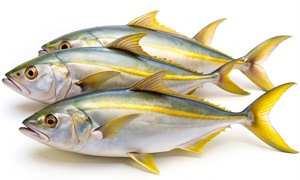
03 June 2025 | 5 min. readingtime
When nature feels the heat
Climate change and biodiversity loss are two sides of the same coin. At a.s.r. asset management, we are taking action on three fronts to address these two pressing issues.

02 November 2022 | 5 min. readingtime
At the end of 2021, a.s.r. formulated new, more stringent targets, one of which was related to the impact of investments. By the year 2024 at the latest, the size of impact investments must amount to EUR 4.5 billion. This objective relates to the internally managed a.s.r. investment portfolio for Own Account, and is carried out by the business lines 'Asset Management', 'Real Estate' and 'Mortgages'.
Every organization creates a certain positive impact and/or negative impact to varying degrees, both financially and socially. For example, online shopping company Amazon creates employment and ensures that consumers receive products at the lowest cost as quickly as possible. Both aspects are an example of positive impact, however, when classifying an impact investment it remains important to visualize the full picture. For example, it appears that Amazon employees often have to work under very high work pressure and that sometimes there is not even time for a toilet break. The enormous increase in scale of Amazon's activities also leads to a monopoly position and the bankruptcy of smaller suppliers. From that perspective, we cannot say that Amazon is an impact investment, but that positive impact is achieved on certain points and not or even negative on other themes. We are therefore currently in talks with Amazon to address these points. Fortunately, there are sufficient methodologies to define impact investments. The most commonly used definition is that of the Global Impact Investment Network (GIIN): 'Investments with the intention of generating positive, measurable social and/or environmental impact in addition to a financial return'. This methodology also forms at a.s.r. the basis for our impact framework, we use the following principles:
at a.s.r. we also use the UN PRI Market Map, developed by the UN PRI (Principles for Responsible Investments) in collaboration with key stakeholders, which provides a practical link between the sometimes difficult to quantify ambitions of the SDGs and investment opportunities with a 'real world' impact. The Market Map describes which share of a company's revenue (which can be as much as 70% of the output) should go towards one of the ten impact themes. This includes topics such as renewable energy, sustainable agriculture or forestry, education and health.
Link with the SDGs
The United Nations has drawn up a development agenda for the period 2015-2030, which has been translated into 17 different goals, the so-called Sustainable Development Goals (SDGs). The UN PRI sees the SDGs as one of the methods for implementing impact investing. The SDGs are therefore linked to the underlying themes and a distinction is made between ecological and social aspects.
Within a.s.r. we also work intensively with the SDGs, for example our assessment process for impact investments means that a link must be made to which SDG(s) the impact relates to. The measurability and method of monitoring should also be assessed here. At the moment, our impact portfolio has most of the interface with SDGs 3 (Good Health and Well-Being), 7 (Affordable and Clean Energy) and 13 (Climate Action). Some examples of impact indicators resulting from this are the number of MWh of green energy produced, the number of new/better medicines for potential patients and the amount of avoided tonnes of CO2-equivalent emissions. Another category of impact is our investment in an Ecuadorian social housing bond, with which we contributed over the year 2021 to the delivery of more than 2300 homes for the lower income groups. This shows once again that the definition of impact investment can be very broad.
The impact portfolio of a.s.r. currently exceeds 2.5 billion and consists of many different investments. To gain a better insight into the companies in our impact portfolio, we have highlighted a few examples:
As a former oil and gas products company, Danish Orsted is a notable name within the portfolio. Since 2019, Orsted has been the most sustainable energy producer in the world and develops, builds and operates offshore and onshore wind farms, solar parks, energy storage facilities and renewable hydrogen installations. In addition, the company has set itself the target of having a net positive impact on biodiversity by 2030.
Through our private equity investment in Rubio Impact Ventures, we invest in smaller companies with a higher risk profile, often start-ups. One of these companies is the Spanish Novameat. Since the meat industry accounts for more than 15% of global greenhouse gases, this company is committed to the production of plant-based products, where the texture and taste of meat is kept as identical as possible. They now produce vegan steaks, medallions and chicken breast.
Another investment within the portfolio are the funds of EQT Life Sciences. These funds select investment opportunities that can contribute to a healthier society, through new medicines or medical equipment, at lower costs. Demographic trends such as old age and increasing prosperity lead to a greater demand for better medication, more timely diagnoses and faster treatments. Through the many different underlying investments, these funds contribute positively to general health.

03 June 2025 | 5 min. readingtime
Climate change and biodiversity loss are two sides of the same coin. At a.s.r. asset management, we are taking action on three fronts to address these two pressing issues.

21 May 2025 | 5 min. readingtime
1.5°C was the crucial limit to avoid the most catastrophic consequences of climate change. There is now a growing awareness that this goal is rapidly moving out of sight. That means something to humans and the planet.

07 April 2025 | 5 min. readingtime
The ASR Global Impact Equity Fund invests in companies that contribute to sustainable transitions, such as the transition to responsible food production. A good example of this is sustainable fish.